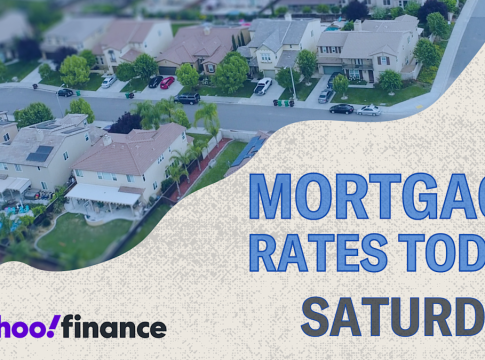Mortgage Rates Hold Steady: What You Need to Know
In today’s financial landscape, the stability of mortgage rates provides a silver lining for potential homebuyers. As of now, the national average for a 30-year fixed mortgage is 6.73%, while the 15-year fixed rate remains at 5.95%. With these rates holding firm, it’s a relief for those aiming to secure a mortgage amid fluctuating economic conditions.
Market Indicators: What’s in Store?
Last Friday, a favorable jobs report bolstered the stock market and caused increases in bond yields. Specifically, the 10-year Treasury yield, which serves as a bellwether for mortgage rates, edged up, indicating that an upward trend in mortgage rates could be imminent if market dynamics remain unchanged through the upcoming week. Therefore, while today’s rates are stable, they may not be so for long.
Current Mortgage Rates Snapshot
Here’s a quick look at the average rates based on recent Zillow data:
- 30-Year Fixed: 6.73%
- 20-Year Fixed: 6.35%
- 15-Year Fixed: 5.95%
- 5/1 ARM: 6.98%
- 7/1 ARM: 6.97%
- 30-Year VA: 6.28%
- 15-Year VA: 5.64%
Remember, these rates are national averages and can vary based on location.
Refinance Rates at a Glance
If you’re considering refinancing, here are some current averages:
- 30-Year Fixed: 6.83%
- 20-Year Fixed: 6.34%
- 15-Year Fixed: 6.01%
- 5/1 ARM: 7.44%
Generally, refinance rates tend to be a bit higher, but that’s not always the case. It pays to shop around and compare offers.
Understanding Mortgage Choices
Fixed vs. Adjustable Rates
A 30-year fixed mortgage offers lower payments and predictable costs, making it a popular choice. However, this comes with a downside: higher overall interest payments due to the extended repayment period.
In contrast, a 15-year fixed mortgage allows you to repay your home faster and at a lower interest rate. While this means higher monthly payments, you save significantly on interest over the life of the loan.
Adjustable-rate mortgages (ARMs), like a 5/1 ARM, feature lower initial rates that can rise after a set period, introducing unpredictability in payments. This might be beneficial if you plan to sell before the rate adjusts.
Timing the Market: A Personal Decision
Despite fluctuating rates, housing prices are stabilizing compared to the dizzying heights seen during the COVID-19 pandemic. Experts recommend focusing on whether it’s the right time for you to buy, rather than trying to predict market changes.
Your personal financial situation—like job stability and your family’s needs—should guide your decision.
Ready to Take Action?
If you’re in the market for a mortgage—whether buying a new home or refinancing—consider using online mortgage calculators to estimate monthly payments, including homeowners’ insurance and property taxes. This can help you make a well-informed decision.
Ultimately, while market conditions can influence your mortgage rate, the best time to buy a home is when it aligns with your life circumstances. Stay informed, evaluate your options, and choose the path that suits you best.

Writes about personal finance, side hustles, gadgets, and tech innovation.
Bio: Priya specializes in making complex financial and tech topics easy to digest, with experience in fintech and consumer reviews.

